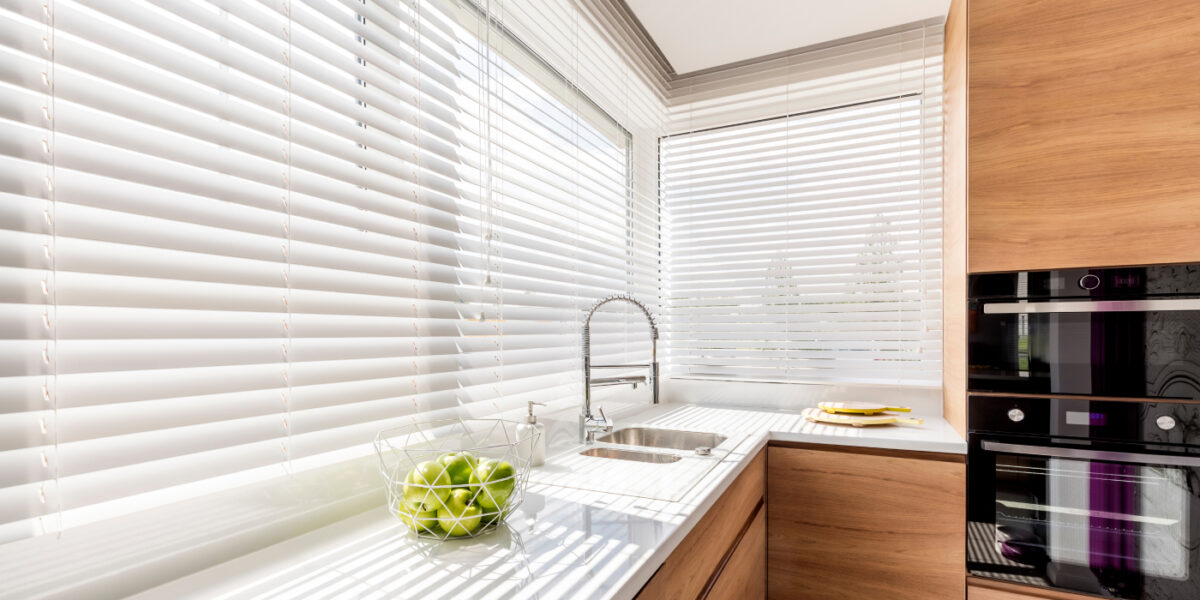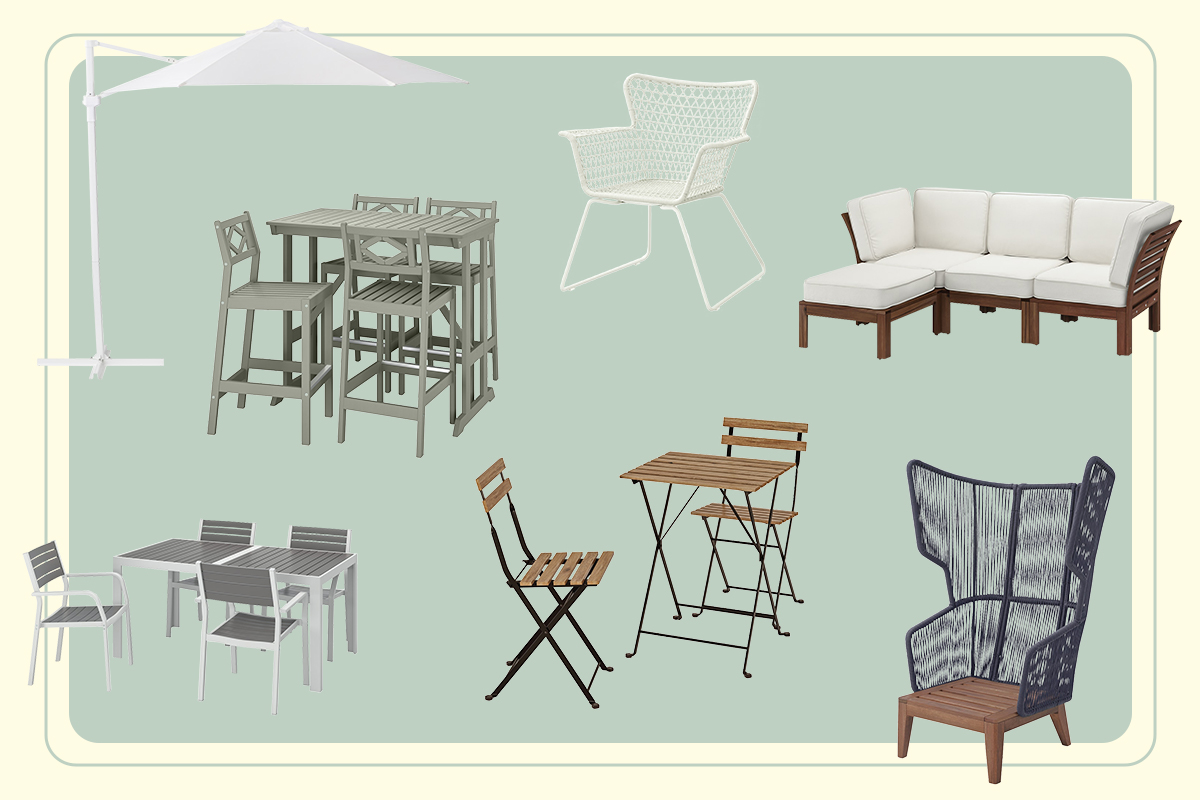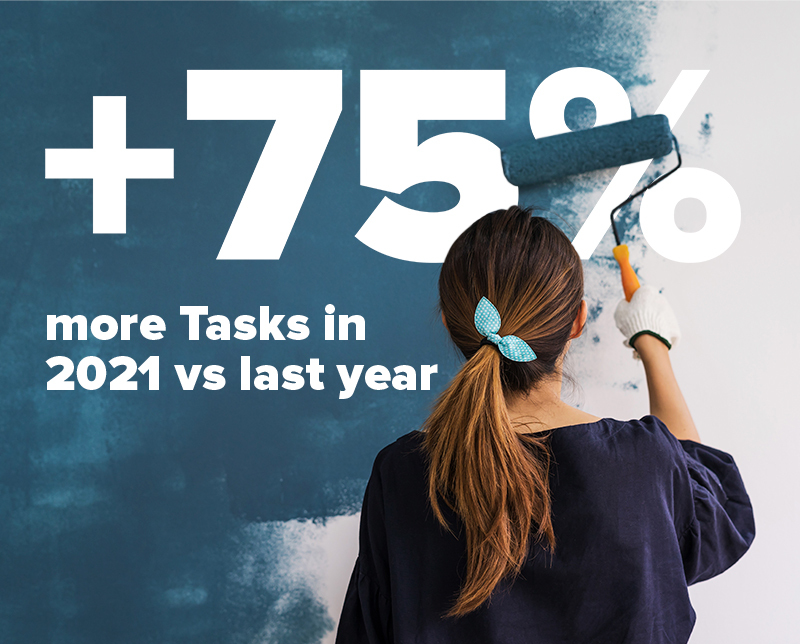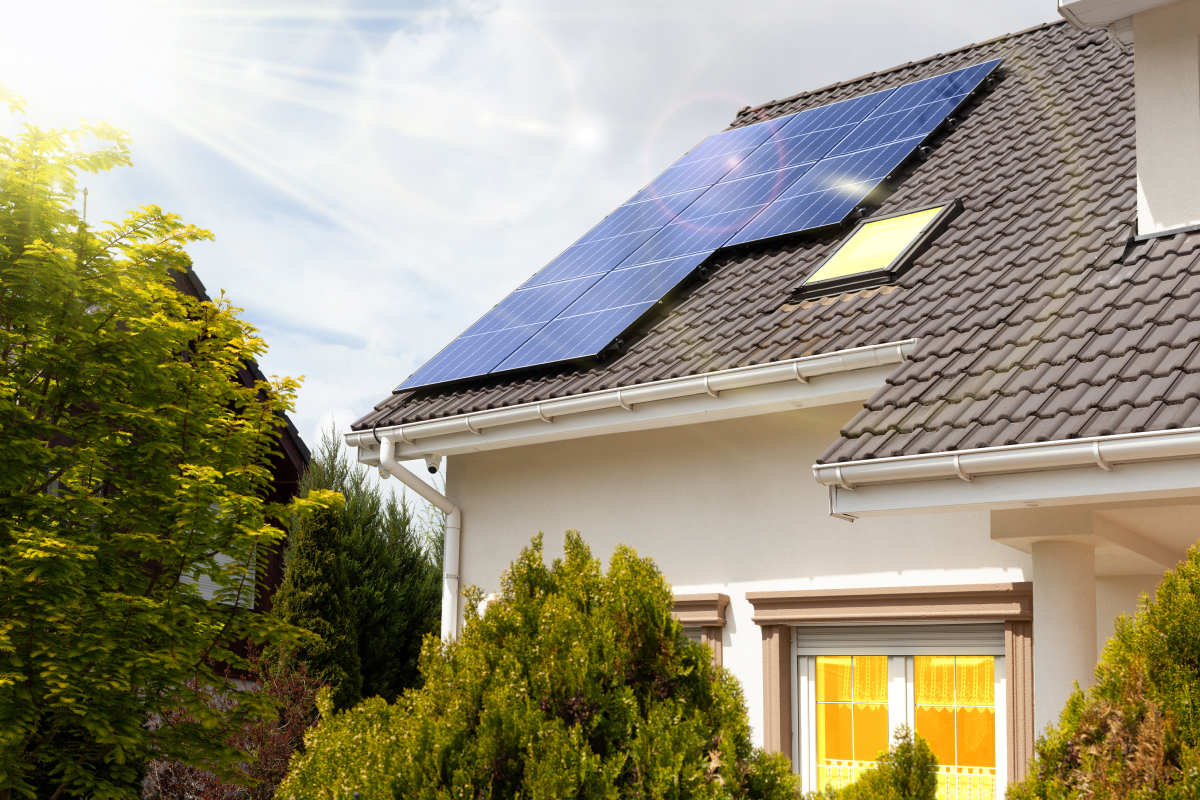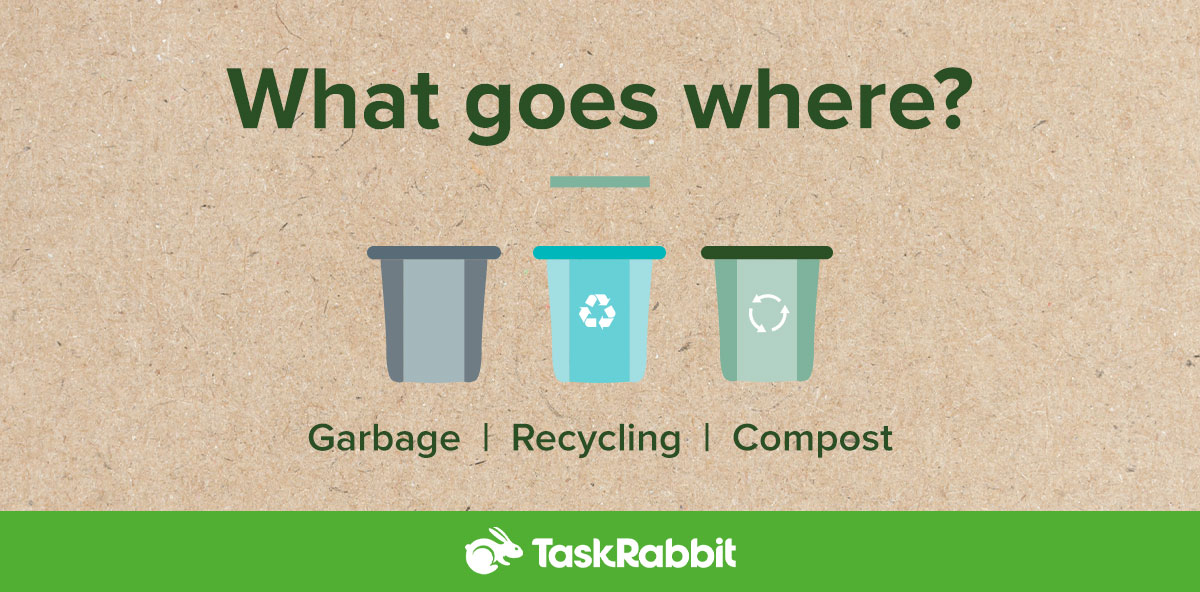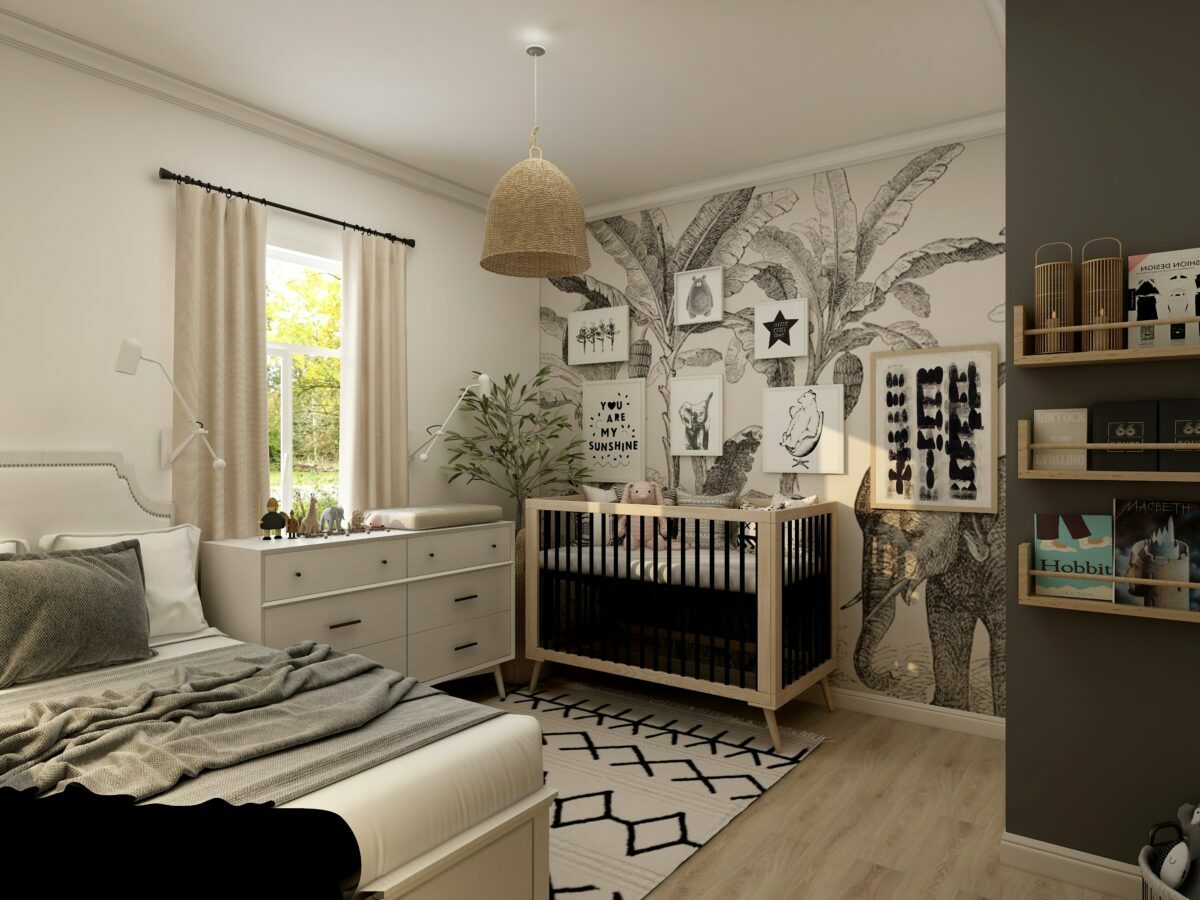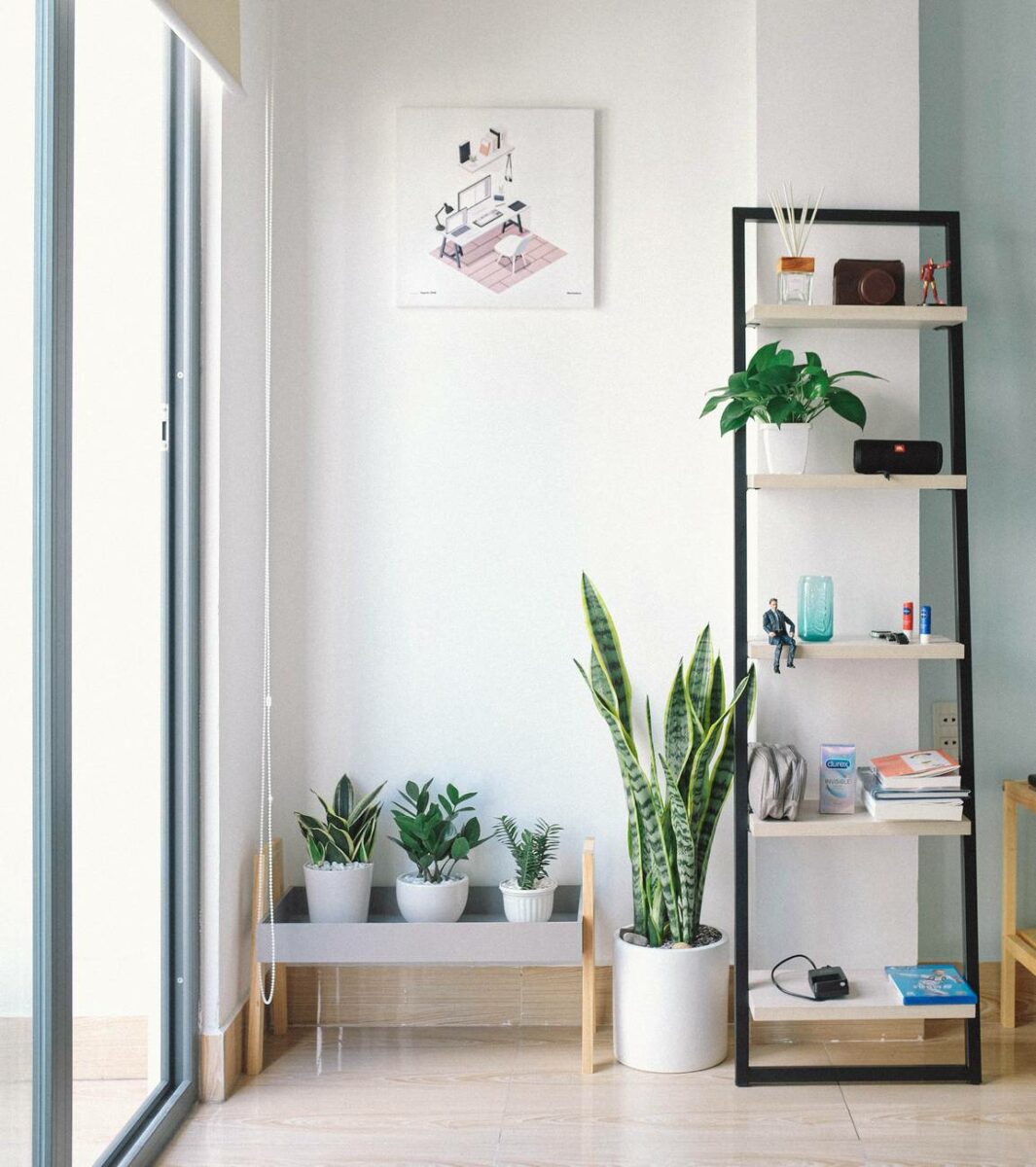The cost of window blinds can vary depending on various factors such as material, size, type, brand, and labor. According to HomeAdvisor, homeowners can expect to spend between $209 to $1,338 for blinds, including installation, or $769 on average. Individual blinds cost an average of $80 each and you can expect to pay up to $50 per window.
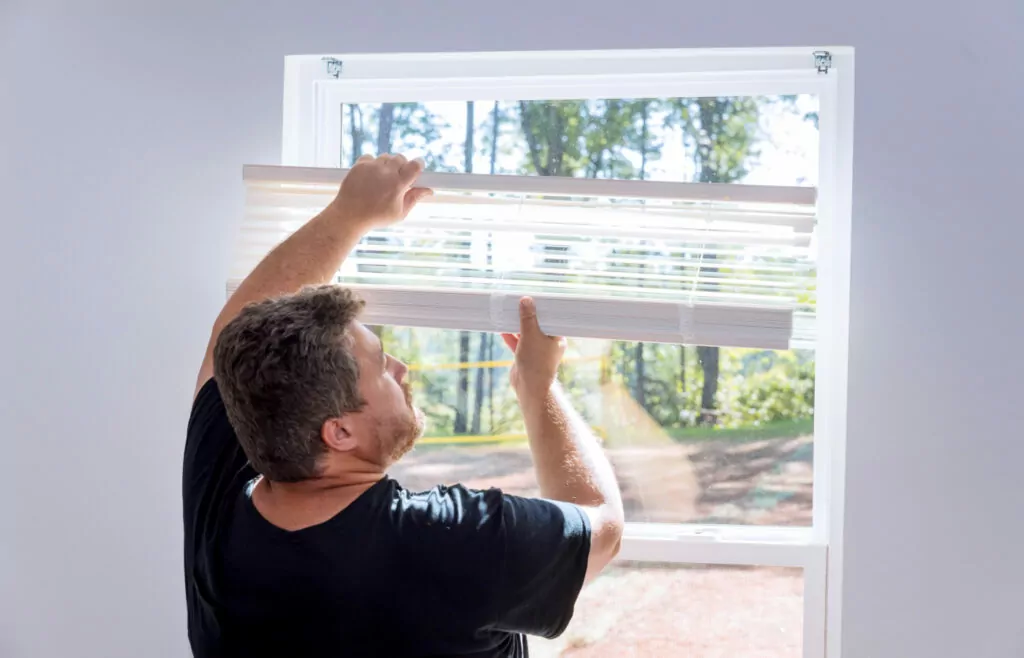
Once you see the difference quality blinds make, you can’t unsee it! Blinds provide privacy, light control, and insulation and can improve your home’s value. This article will help you answer the question, “How much do blinds cost?” by addressing the various factors that influence their price.
Factors that Affect the Cost of Blinds
When investing in blinds for your home, there are several crucial factors to keep in mind, each of which can impact the overall cost.
Material
Blinds come in various materials, including wood, aluminum, vinyl, fabric, plastic, bamboo, leather, metal, and PVC. Wood blinds exude elegance but are the priciest material, at up to $200 each, while vinyl blinds start at $6 each.
Size
The size of your windows directly affects the cost. Larger windows require more materials, which can increase the overall expense. You’ll pay more for blinds that need custom sizing, expensive materials, or automation. Standard size window blinds vary in size, with most the standard window length ranging from 36 to 72 inches, and width ranging from 24 to 60 inches. Blinds for wide windows will cost more than standard-sized windows.
Here’s a breakdown of price by size, according to HomeAdvisor.
| Size of Window (Inches) | Price Range (All-In) |
| 24 x 36 | $45 – $140 |
| 36 x 48 | $75 – $230 |
| 36 x 72 | $110 – $320 |
| 60 x 72 | $170 – $500 |
Brand
Regardless of material or size, you can pay more for brand names. Here’s a price breakdown of popular brands in 2023 so you can see the difference.
| Brand | Average Price Range per Window | Average Price per Window |
| Bali | $20 – $60 | $40 |
| Blinds To Go | $30 – $80 | $60 |
| Chicology | $15 – $170 | $93 |
| Hampton Bay | $10 – $75 | $43 |
| Hunter Douglas | $200 – $500 | $350 |
Labor
If you opt for professional installation, labor costs will be an additional factor to consider. However, we recommend professional installation because it ensures a proper fit and saves you time and effort. According to Bob Vila, labor can run between $35 and $100 per hour. If you have eight total windows that need blinds, you can expect to pay up to $400 for labor alone or about $50 per window.
Location
Regardless of all the factors mentioned above, geographic location can change the cost of labor and materials. Labor costs will likely increase in areas with higher costs of living. Some areas have more convenient access to materials, lowering the overall cost.
Removal and Disposal of Old Blinds
If you hire a professional to install your blinds, the removal and disposal costs are likely to be included in your quote. However, it always helps to double check. Because of labor costs, you’ll likely to pay up to $200 to get them removed. If it’s an option, let your blinds installer dispose of your old blinds, which is a more affordable option than hiring a junk removal company.
Different Types of Blinds and Their Cost
There are many types of blinds to consider before committing to one style. Make sure to familiarize yourself with the various types of blinds for the best cost, functionality, and design.

| Blind Type | Average Cost (All-In) |
| Mini | $20 – $140 |
| Cordless | $30 – $330 |
| Roller | $25 – $350 |
| Solar | $45 – $350 |
| Vertical | $65 – $350 |
| Venetian | $26 – $400 |
| Cellular | $65 – $380 |
| Roman | $65 – $400 |
| Customized | $65 – $650 |
| Motorized or electric | $400 – $600 |
| Bay | $165 – $550 |
| Vertical, Sliding Glass Door | $135 – $650 |
Mini
Mini blinds, also known as aluminum blinds or 1-inch blinds, consist of horizontally slatted blinds made from lightweight aluminum. They are one of the most popular and affordable window treatments in homes and offices. The term “mini” refers to the narrow width of the slats, which are typically around 1 inch wide. The cost ranges from $20 to $140.
Cordless
Cordless blinds operate without the need for traditional cords or chains for adjustment. Instead of using cords to raise, lower, or tilt the blinds, they feature a modern and user-friendly mechanism that allows you to control the blinds with ease and safety. These child-safe blinds usually cost between $30 to $330 per window.
Roller
Roller blinds consist of a single piece of fabric or material that rolls up and down around a cylindrical tube, often called a roller or a roller mechanism. When raised, the fabric is rolled up at the top, providing an unobstructed view through the window. Conversely, the fabric covers the window when the blinds are lowered, offering privacy and light control. Minimalistic and easy to maintain, roller blinds typically range from $25 and $350.
Solar
Solar blinds block out harmful UV rays and reduce glare while maintaining a view of the outside. They are an excellent choice for spaces that receive direct sunlight, as they help regulate indoor temperature, protect furnishings from fading, and provide energy efficiency benefits. These eco-friendly blinds cost between $45 to $350 per window.
Vertical
Vertical blinds hang from a track at the top of the window or door and are considered the best blinds for wide windows. Their vertical slats can be tilted open or closed, and the entire blind can be drawn to one side to provide an unobstructed view through the window or door. Ideal for large windows and sliding doors, vertical blinds can cost anywhere from $65 to $350.
Venetian
Venetian blinds consist of horizontal slats suspended by cords or strips of cloth. These slats can be tilted open or closed, and the entire blind can be raised or lowered to control the room’s light and privacy. Venetian blinds range from $26 to $400.
Cellular
Cellular blinds, also known as honeycomb blinds or cellular shades, feature a unique honeycomb-like cellular structure. These blinds provide enhanced insulation and energy efficiency, making them an excellent choice for cold and warm climates. Cellular blinds run from $65 to $280.
Roman
Roman blinds offer a soft and elegant look to any room. These blinds consist of a single piece of fabric that folds into pleats when raised and lays flat when lowered, providing a smooth and seamless appearance. Roman blinds typically range from $65 to $400.
Customized
Also known as made-to-measure blinds or bespoke blinds, custom blinds are tailored to fit specific window sizes and specifications. Unlike ready-made blinds that come in standard sizes, customized blinds are individually crafted to perfectly fit the exact dimensions of your windows, ensuring a seamless and precise fit. Prices vary but generally run between $65 to $650 each.
Motorized or Electric
Motorized blinds are controlled electronically through the use of a motorized system. These blinds offer a convenient and modern solution for opening, closing, and adjusting the slats or fabric of the window treatment. Offering convenience at a higher cost, electric blinds cost from $400 to $600.
Bay
A bay window is a combination of three or more windows that project outward from the main walls of a room, creating a bay or alcove. These blinds usually cost $165 to $550.
Vertical, Sliding Glass Door
Ideal for sliding doors, these blinds are usually 80 inches tall by 72 inches wide and priced between $140 to $650.
Blinds vs. Shades
What’s the cost difference between blinds vs shades? HomeAdvisor’s data states that blinds cost an average of $700, while shades cost $1,600 on average to purchase and install. The two options also differ in usability. Blinds provide more precise light control and are generally more affordable than shades. They’re also better for privacy. Shades, on the other hand, offer a potentially more attractive appearance and better insulation. The choice between blinds and shades ultimately depends on your preferences and needs.
When to Get New Blinds
Many homeowners overlook their blinds when considering potential renovations or maintenance tasks, but replacing blinds can transform a room. Window experts recommend replacing most blinds every six to eight years, but blinds are durable, and you can extend their life with proper care.

Here are some signs that its time to replace your blinds:
- They show signs of discoloration or damage
- They no longer function correctly, jeopardizing your safety
- They no longer match your interior style
When to Get Help
Installing blinds can be a DIY project for some, but seeking professional help has numerous benefits. Professional installers ensure precise measurements and a perfect fit, in addition to troubleshooting any issues that may arise, saving you time and frustration. If you’re looking for a seamless and hassle-free experience, consider hiring experts.
The benefits of outsourcing the task likely outweigh the potential cost savings of installing blinds yourself. To find a handyperson experienced in Blind Installation, click here.
Last updated on March 5, 2025 by Meghan Lalonde
